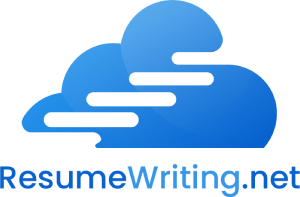When it comes to job hunting or career advancement, you may come across two types of letters that seem similar but serve distinct purposes: the letter of interest and the cover letter. While both are used to communicate with potential employers, they are employed in different contexts and convey different messages. Understanding the nuances between a letter of interest and a cover letter can significantly enhance your job search strategy and help you present yourself effectively to prospective employers.
What is a Letter of Interest?
A letter of interest, also known as a prospecting letter or inquiry letter, is a document sent to an employer to express interest in potential job opportunities that have not been publicly advertised. This type of letter is proactive, as it reaches out to employers to explore the possibility of future employment. It is often used when you admire a company’s work, culture, or reputation and wish to be considered for any upcoming positions that align with your skills and career goals.
Key Elements of a Letter of Interest:
- Introduction: Begin with a brief introduction that explains who you are and why you are writing. Mention how you learned about the company and why you are interested in working there.
- Skills and Experience: Highlight your relevant skills, qualifications, and experiences. Emphasize how your background aligns with the company’s values and goals.
- Company Knowledge: Demonstrate your knowledge of the company by mentioning specific projects, achievements, or initiatives that impressed you. This shows that you have done your research and are genuinely interested in the organization.
- Future Contributions: Explain how you can add value to the company and contribute to its success. Be specific about the roles or departments where you see yourself fitting in.
- Call to Action: End with a call to action, expressing your desire for an informational interview or meeting to discuss potential opportunities further. Provide your contact information and availability.
Example:
Dear [Employer's Name],
I am writing to express my interest in potential employment opportunities at [Company Name]. With a background in [Your Field], I have admired [Company Name]'s innovative approach and dedication to [specific company value or project]. I am particularly impressed with [mention a specific project or achievement].
I have [number] years of experience in [your area of expertise] and have developed a strong skill set in [list relevant skills]. I am confident that my expertise in [specific area] would enable me to contribute effectively to your team. I am particularly interested in [specific department or role] and believe that my background aligns well with [Company Name]'s goals.
I would appreciate the opportunity to discuss how my skills and experiences can benefit [Company Name]. Please feel free to contact me at [your contact information] to schedule a meeting. Thank you for considering my interest.
Sincerely,
[Your Name]
What is a Cover Letter?
A cover letter is a document sent alongside your resume when applying for a specific, advertised job opening. It serves as a personalized introduction to your application, providing context to your resume writing and explaining why you are the ideal candidate for the position. A cover letter should be tailored to the specific job and employer, demonstrating your understanding of the role and how your skills and experiences make you a suitable fit.
Key Elements of a Cover Letter:
- Introduction: Start with a brief introduction that states the job you are applying for and how you found out about the opening. Mention any mutual connections or referrals, if applicable.
- Relevance to the Job: Highlight your relevant skills, experiences, and accomplishments that directly relate to the job requirements. Use specific examples to demonstrate how you meet the qualifications.
- Understanding of the Role: Show that you have thoroughly read the job description and understand the role’s responsibilities. Explain why you are excited about this opportunity and how it aligns with your career goals.
- Company Fit: Demonstrate your knowledge of the company and its culture. Explain why you are interested in working there and how you can contribute to its success.
- Closing: Conclude with a strong closing statement, reiterating your enthusiasm for the position and your desire for an interview. Provide your contact information and availability for follow-up.
Example:
Dear [Hiring Manager’s Name],
I am excited to apply for the [Job Title] position at [Company Name], as advertised on [Job Board/Company Website]. With my background in [Your Field] and [number] years of experience in [specific area], I am confident in my ability to contribute effectively to your team.
In my previous role at [Previous Company], I successfully [mention a relevant accomplishment or responsibility]. My experience in [specific skills or technologies] aligns well with the requirements outlined in the job description. I am particularly drawn to [Company Name]’s commitment to [specific value or project], and I am eager to bring my expertise in [relevant area] to your team.
I have always admired [Company Name]’s [specific aspect of the company], and I believe that my background in [your area of expertise] would allow me to contribute to your ongoing success. I am especially impressed with [mention a specific project or achievement] and am excited about the opportunity to be part of such an innovative organization.
Thank you for considering my application. I look forward to the possibility of discussing how my skills and experiences align with the needs of your team. Please feel free to contact me at [your contact information] to schedule an interview.
Sincerely,
[Your Name]
Differences Between a Letter of Interest and a Cover Letter
- Purpose:
- A letter of interest is used to inquire about potential job opportunities that are not advertised.
- A cover letter is sent in response to a specific job posting.
- Timing:
- A letter of interest is sent proactively, without a specific job opening in mind.
- A cover letter is sent reactively, in response to a specific job vacancy.
- Content Focus:
- A letter of interest focuses on your general skills and how they can be beneficial to the company in the future.
- A cover letter is tailored to a specific job, emphasizing how your qualifications match the job requirements.
- Tone:
- A letter of interest often has a more exploratory and open-ended tone.
- A cover letter is more targeted and specific to the job at hand.
- Research:
- A letter of interest requires in-depth research about the company to show genuine interest and understanding of its culture and goals.
- A cover letter requires a thorough understanding of the job description and the skills needed for the position.
Final Thoughts
Both a letter of interest and a cover letter are valuable tools in your job search arsenal, each serving unique purposes. A letter of interest allows you to proactively reach out to companies you admire, opening the door to potential opportunities that may not be publicly advertised. On the other hand, a cover letter lets you respond directly to job postings, showcasing how your skills and experiences align with the specific role. You should also know how long a cover letter is to find the balance between showing your qualifications and work experience.
By understanding the differences and knowing when to use each type of letter, you can enhance your job search strategy, making a strong impression on potential employers and increasing your chances of landing your desired job. Whether you are exploring new opportunities or applying for a specific position, a well-crafted letter can be a powerful way to present yourself as a qualified and enthusiastic candidate.


